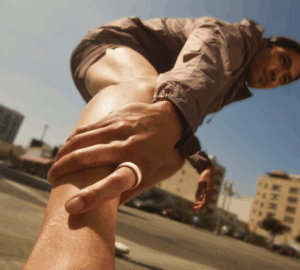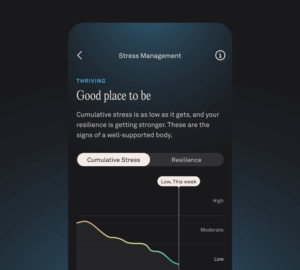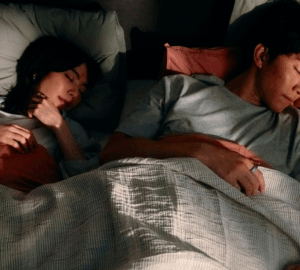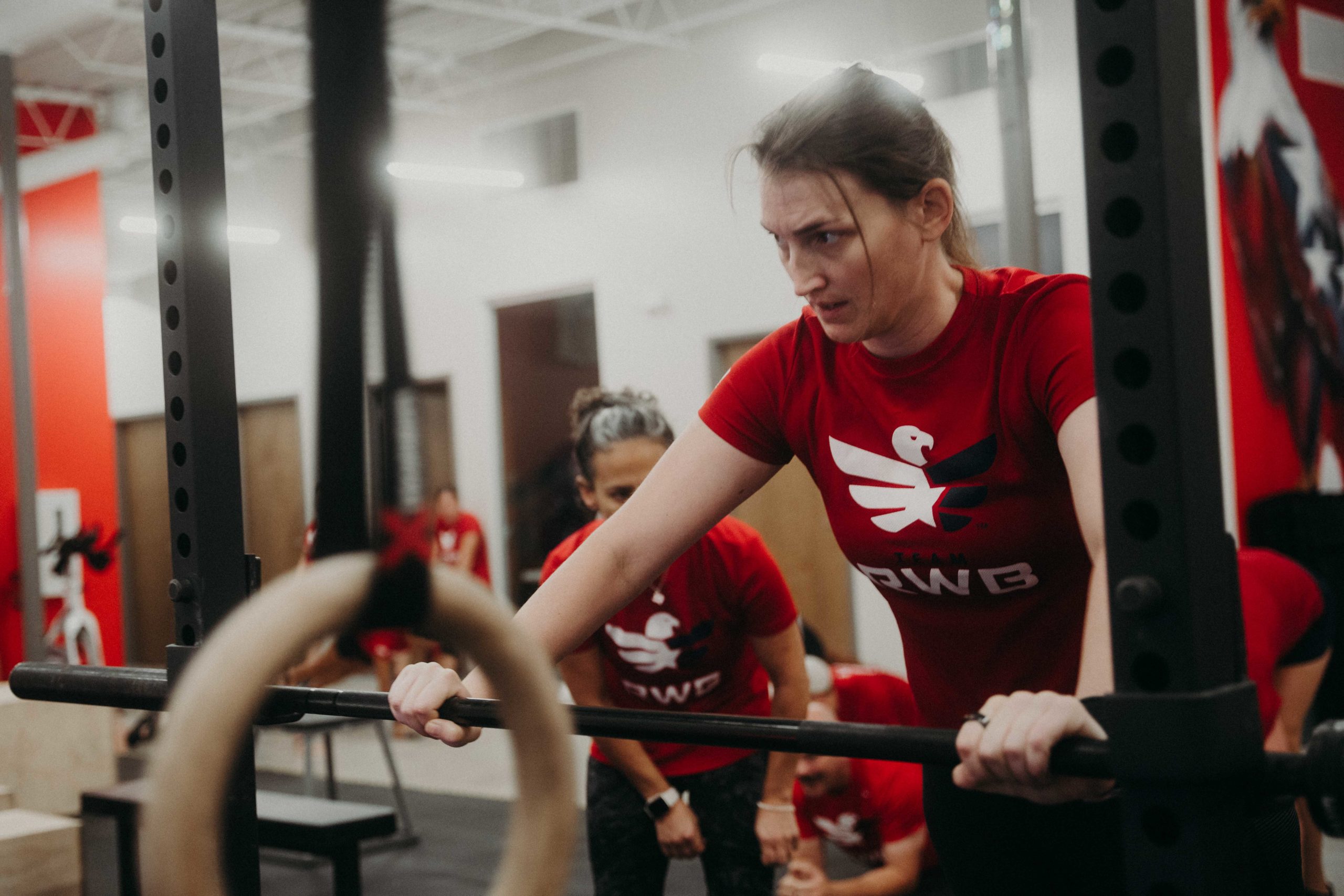Team Red, White & Blue (Team RWB) is a veteran service organization, founded in 2010 with the mission of enriching veterans’ lives by forging the leading veterans’ health and wellness community. Since its inception, Team RWB has grown to 194 community-based chapters serving over 220,000 members.
One of Team RWB’s focuses from the beginning has been helping veterans to become more physically active. Without sustained activity routines, many often gain weight with obesity becoming an increasing challenge for the population. With weight gain and its associated cardiovascular diseases, many veterans have become more susceptible to co-morbid sleep problems as well. Decreased sleep quality and duration are also co-occurring with other common mental and physical health conditions that can result from military service experiences, like post-traumatic stress and traumatic brain injury.
Veterans’ interest in increasing sleep health may also be inhibited by the military’s historic “anti-sleep” culture, which devalues rest. Therefore, improving sleep and physical activity for veterans has become a specific focus for Team RWB. In 2019, Team RWB launched virtual programming via a mobile and web based app, which was enhanced during Covid-19. Team RWB saw an opportunity to offer virtual health education programming alongside its virtual fitness classes.
Below, Team RWB shares a summary of the program’s methods, results, and next steps.
Summary
Team RWB’s vision for this project was to explore the feasibility and acceptability of offering a virtual health education program to improve veterans’ sleep, physical activity (daily step count), and enrichment. A licensed clinical psychologist, implemented four, 30-minute, weekly group coaching sessions over a 28-day intervention. We examined changes in sleep, step count, and enrichment between baseline and follow-up period. Oura Ring provided personalized sleep and activity feedback to participants over the course of the program.
Learn more about the methods and participants in the program here.
Results
We used the net promoter score (NPS) as a “customer experience measure.” 38 members provided the following feedback:
For the sleep and activity health education program, 73.7% gave the program a 9 or 10, with an overall 68.4 or “great” NPS score. For the Oura Ring, 71% gave the ring a 9 or 10, with an overall 65.8 or “great” NPS score. The percentage of 38 participants who stated the program had positive to very positive impact is shown in Figure 1:
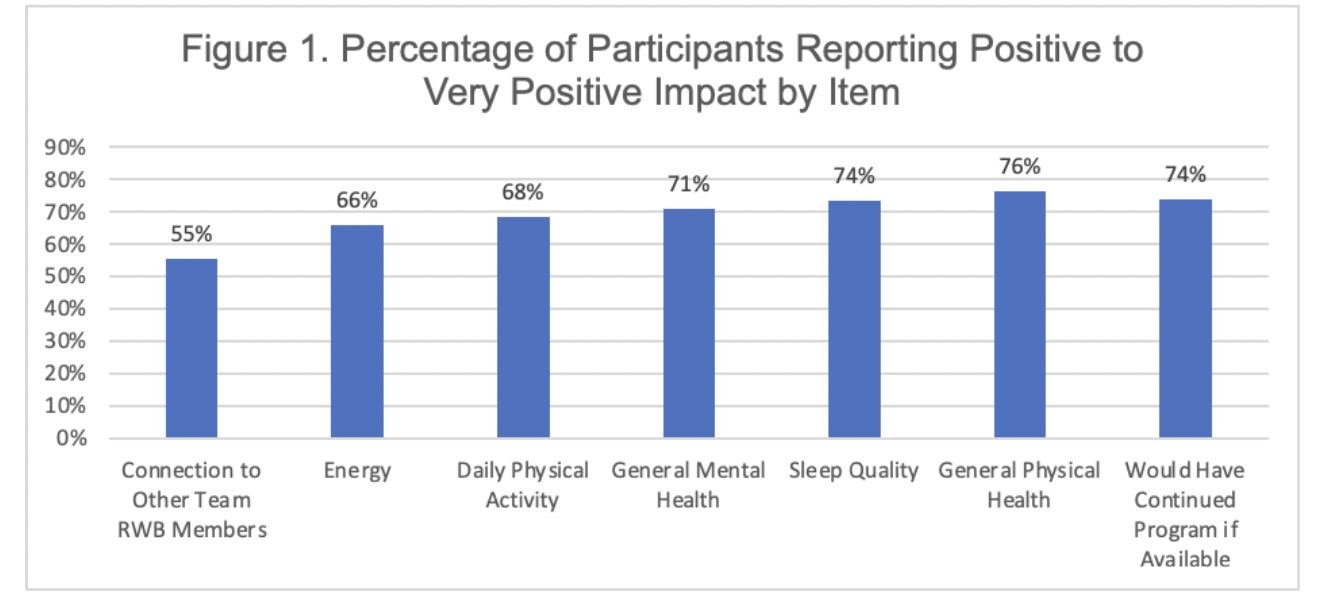
Although evaluating feasibility and acceptability were our primary goals of the pilot, we also explored preliminary evidence for the virtual health education program’s efficacy in improving veterans’ sleep, physical activity (daily step count), and enrichment.
Sleep
- Amongst 10 members with sleep scores below 70 on average at baseline, scores increased by 3 points, yielding a medium effect with 5% increases. Across all participants, sleep scores demonstrated no significant change.
- Amongst 19 members with total sleep time below 7 hours on average at baseline, time asleep increased 18 minutes 37 seconds, yielding a medium effect with 6% increases. While total sleep increased 10 min 39 seconds for all participants, this was not a statistically significant increase.
- Amongst 11 members with sleep efficiency scores below 85% on average at baseline, scores increased by 3.38 points, yielding a medium effect with 7% increases. Across all participants, sleep efficiency scores demonstrated no significant change.
Physical Activity (Steps per Day)
Figure 2 demonstrates how step count changed by all participants, participants with baseline average steps below 5000/day, and participants with baseline average steps above 5000/day.
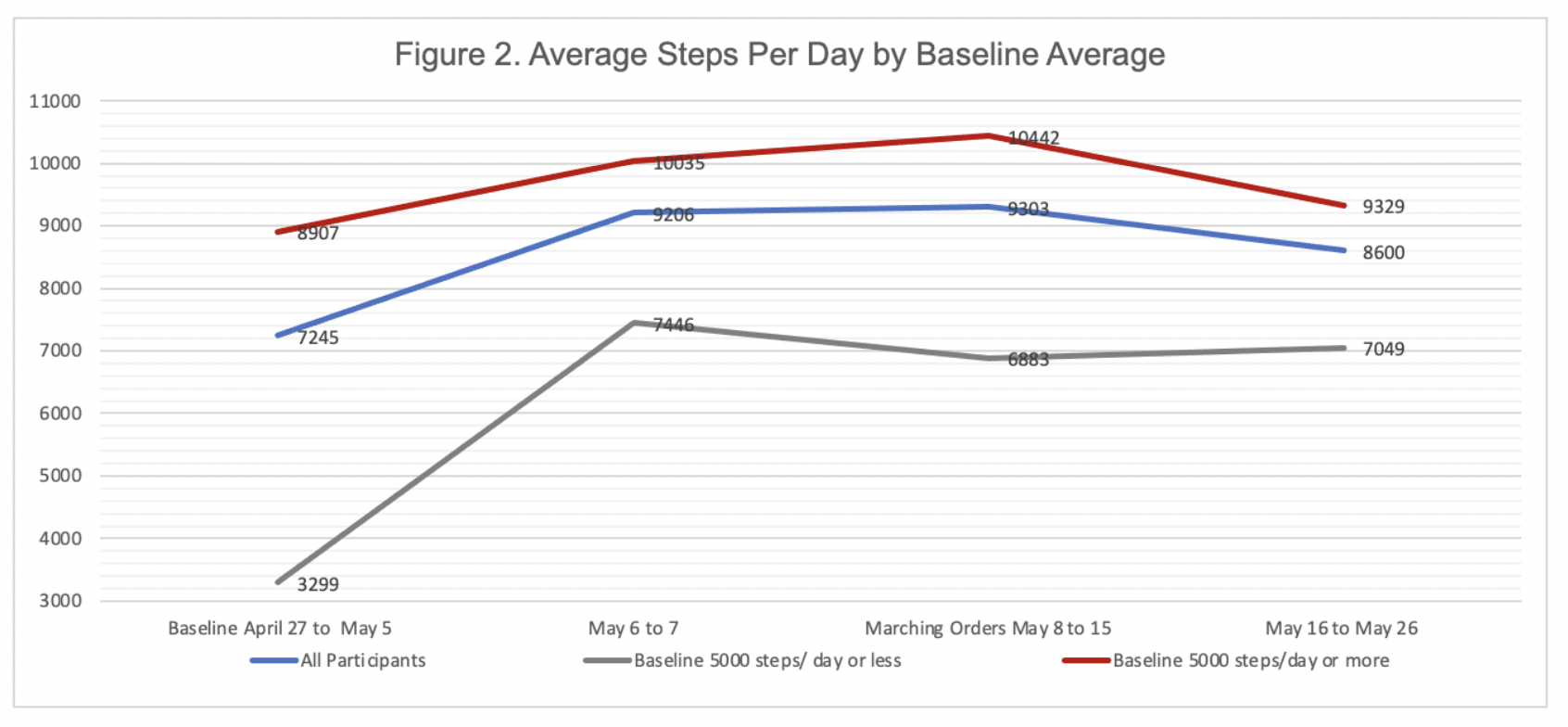
Enrichment
- Overall, member enrichment was increased by program participation; participants’ total enrichment score demonstrated an 8 percent increase from baseline, with a medium sized effect.
For more details on the results, please find full report of the pilot program here.
Next Steps
In our pilot project, we sought to evaluate the feasibility and acceptability of Team RWB’s virtual health education program to improve veterans’ sleep, physical activity (daily step count), and enrichment. Overall, participation had positive to very positive self-reported participation gains, and participants would recommend the program and Oura Ring to others. While not a rigorous test of efficacy, positive preliminary trends warrant launching a longer and more robust scientific investigation.
With our pilot feasibility and acceptability groundwork complete, our next steps are to explore whether weekly group coaching sessions on sleep, physical activity, and enrichment, supplemented with personalized coaching leveraging Oura Ring feedback amongst the highest need Team RWB veteran members, improves sleep outcomes, and increases daily step count and member enrichment.
RELATED: Oura Helps Me Recover From PTSD & Manage My Depression






